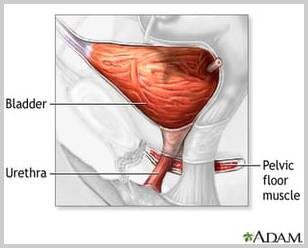
Interstitial Cystitis
Interstitial cystitis (IC) is a chronic inflammation or irritation of the bladder and the surrounding pelvic region. People who are diagnosed with interstitial cystitis may experience a range of symptoms but may include mild to moderate discomfort, pressure, tenderness, or intense pain in the bladder and pelvic region. Also known as painful bladder syndrome, interstitial cystitis most commonly affects women but can affect men as well. The symptoms may be intermittent and can vary greatly over time.
Symptoms of Interstitial Cystitis
Symptoms of interstitial cystitis may vary from person to person and can flare-up irregularly. Symptoms may be mild to severe and may include among others:
● Chronic lower pelvic pain
● Frequent need for urination
● Strong urge to urinate
● Mild to moderate incontinence
● Dysuria (discomfort while urinating)
● Pain during sexual intercourse
● Reduced bladder capacity
Causes of Interstitial Cystitis
The cause of interstitial cystitis is not entirely understood, but some theories suggest that it may be a result or related to:
● A defect in the bladder
● An autoimmune condition where the body's immune system attacks the bladder
● A substance in the urine that damages the bladder
● May be related to other syndromes such as Irritable bowel syndrom
● Some research suggests that interstitial cystitis may be caused by infection, allergies or that it may be a hereditary condition
Diagnosis of Interstitial Cystitis
Since the symptoms of interstitial cystitis (IC) are similar to those of a urinary tract infection, it is frequently misdiagnosed and often there can be a delay to obtaining a correct diagnosis. A correct diagnosis is typically made by ruling out other conditions such as sexually transmitted diseases, bladder infections, and bladder cancer. In addition to a thorough physical examination, diagnostic tests may include:
● Urinalysis
● Urine cytology
● Imaging studies
● Urodynamic Studies
● Cystoscopy
● Bladder biopsies to confirm diagnosis
Treatment of Interstitial Cystitis
Because the cause of interstitial cystitis is not entirely clear, treatments are going to vary from patient to patient. It is going to vary depending on the symptoms as well as the provider and patient's preferences. It may sometimes take some trial to find the right combination of treatment for the specific patient. While these treatments do not completely eliminate IC, they can help to significantly reduce flares or severity of symptoms. Treatment options include a combination of the following:
● Oral medications to relax the bladder
● Hydrodistension (stretching of the bladder)
● Lifestyle modification (diet and stress management)
● Medication instilled directly into the bladder
● Bladder training
● Nerve stimulation
● Surgery
